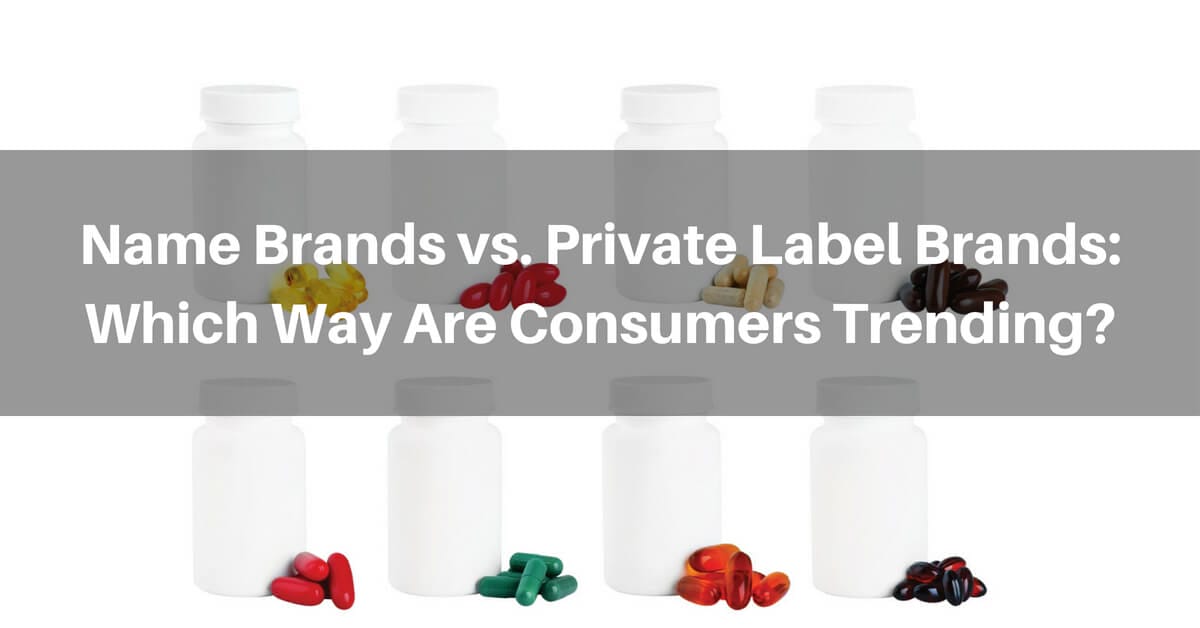Name Brands are not as popular as they used to be. Right now consumers are trending private label brands. The trend might appear strange to a lot of people because not so long ago, people bought mostly on loyalty to name-brand products.
There are now more private-label brands than ever before. Why? The economic recession at the beginning of the 2000s drives consumers to look for lower prices. This trend, for the first time, was consistent for almost every product category. Consumers started using and buying generic brands (which are private-label products) to save money.

A few years later, when the economy had started to recover, consumers were still buying and using private-label products so they could keep saving money. Plus many private label products provide great quality and are as equally good as the name brand.
One good example could be with cosmetic private brands. You can find a good OEM cosmetic manufacturer, and create your entire skincare line that you can sell at your store or online.
What exactly is a private brand product? It refers to the product that is manufactured by one company but packaged, labeled and sold under another company’s brand name — your name, for example.
You can OEM manufacture almost all consumer goods categories. The most common ones are:
- Natural supplements
- Cosmetics or skin care products
- Foods, especially frozen food
- Household goods
- Drinks, juices, soft drinks
- Confectioneries
- Fashion, clothes, shoes
Private label brands are no longer just low-cost alternatives to name brands; they are high-quality products that can be used to help people with their needs.

If you want to start your own private label business, you should consider the following before you start:
- Research the product you want to sell.
– Check the product demand, competition, margin profit, and the cost of investment. The most difficult thing here is to find a product that will make a profit.
– Keep in mind that most private label products sell in between the $10 and $50 range. More expensive products have less competition, but you need to be willing to invest more. - Check the OEM Manufacturer. To be successful, you will need to have a good relationship with your manufacturer. Remember your OEM manufacturer must be trustworthy.
- Once you know which product you want to sell and who will manufacture your product, it is time to request a sample. Try the product. If it is a cosmetic OEM product, use it on your skin, and look for any reaction or problem the product may have. If it is a food supplement, test it, and look for any way to improve the product.
- Design your logo, brand, and packaging. This is the key to making sales. It is time that your brand tells your story.
- Decide the distribution channels. This means how you will fulfill your client’s orders.
- Create a sales and marketing plan. Include everything you need to sell your product.
Keep in mind that branding is essential to private label products because you want to create loyal customers. Also, it is better to stick to a niche zone. This way it is easier to test new products and find out which products are your best sellers.
In fact, you can control all the aspects of your private label products, including adding anything that will help your customers. For example, improve the packaging and branding as the sales grow.
As you can see, OEM manufacturer products are in great demand and you can make money from it. Studies indicated that around 57% of consumers agree that “Brand Names are not Better Quality”. So take advantage of this and start creating your private label.
The best thing about private label products is that you control the brand and you can shape the customer loyalty with it. Keep in mind that customers are still looking for high-quality products at a great price.
Good luck!

